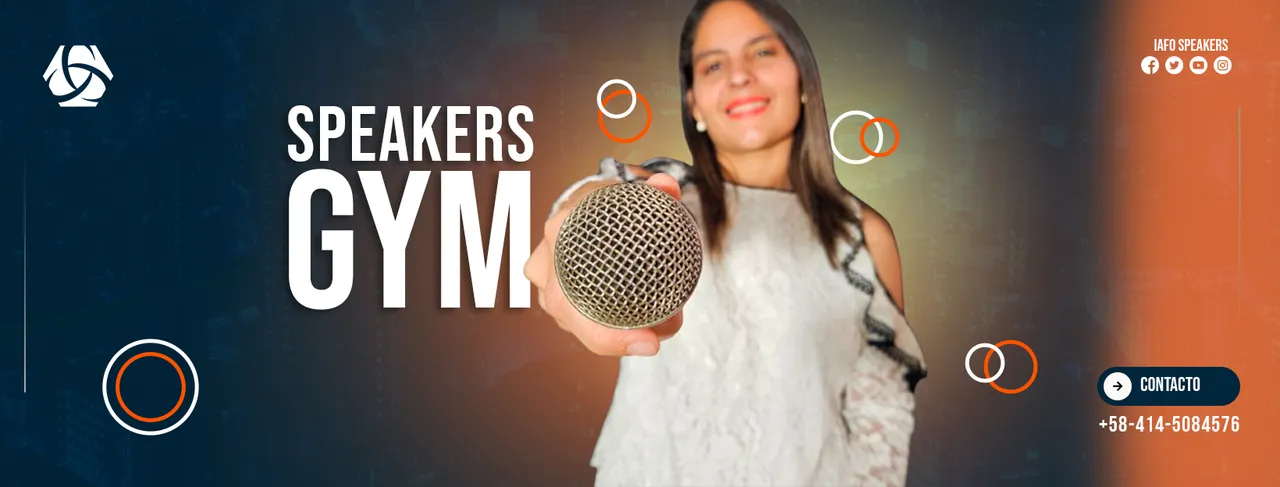El discurso es uno de los cuatro componentes naturales de la oratoria, junto al orador, público y objetivo, porque es el mensaje que transmitimos propiamente, de allí que revisar nuestros hábitos signifique identificar nuestras fortalezas y mejorar las debilidades.
Ahora bien, un error muy común en nuestros discursos y que debemos ajustar para el logro efectivo de nuestros mensajes es el uso del "quiero" más algún verbo en infinitivo.
Nos dice Paola Artmann:
Los verbos en infinitivo son la forma no personal de un verbo, lo que significa que es la forma básica del verbo sin conjugar en ningún modo, tiempo o persona: “comer, hablar o perder”, son ejemplos de verbos en infinitivo.
Ahora bien, a la hora de hablar en público, es importante utilizar un lenguaje claro y conciso. Esto ayuda a que el mensaje llegue de forma efectiva al público. En el caso de los infinitivos siempre los acompañamos de expresiones como; "quiero saludar", "quiero agradecer", "quiero despedirme" y "quiero felicitar", estas utilizan el verbo querer, que indica deseo o voluntad. Sin embargo, en el contexto de un discurso, estas expresiones pueden sonar poco claras o incluso ambiguas.
Por ejemplo, cuando decimos "quiero saludar", el público no sabe exactamente qué vamos a hacer. ¿Vamos a saludar de forma física? ¿Vamos a saludar a una persona en particular? ¿Vamos a saludar a todo el público?
En cambio, si el orador utiliza el imperativo, que son aquellos que utilizamos, según Rut Blasco:
Para expresar deseos, órdenes, consejos o pedidos que tiene el emisor y que tienen relación con el receptor, el cual es el responsable de realizar la acción.
Por eso, al hablar en público en vez de decir "quiero saludar", "quiero agradecer", "quiero despedirme" debemos decir "saludo", "agradezco", "me despido", así el mensaje es mucho más claro y directo. El público sabe lo que estamos haciendo, y no hay lugar a dudas sobre lo que vamos a hacer.
A very common mistake in our speeches
The speech is one of the four natural components of public speaking, together with the speaker, the audience and the target, because it is the message we are transmitting, hence reviewing our habits means identifying our strengths and improving our weaknesses.
Now, a very common mistake in our speeches and that we must adjust for the effective achievement of our messages is the use of "I want" plus an infinitive verb.
Paola Artmann tells us:
Infinitive verbs are the non-personal form of a verb, which means that it is the basic form of the verb without conjugating in any mode, tense or person: "to eat, to speak or to lose", are examples of infinitive verbs.
Now, when speaking in public, it is important to use clear and concise language. This helps the message to reach the audience effectively. In the case of infinitives, we always accompany them with expressions such as "I want to say hello", "I want to thank you", "I want to say goodbye" and "I want to congratulate", these use the verb querer, which indicates desire or will. However, in the context of a speech, these expressions can sound unclear or even ambiguous.
For example, when we say "I want to greet," the audience does not know exactly what we are going to do. Are we going to greet in a physical way? Are we going to greet a particular person? Are we going to greet the entire audience?
Instead, if the speaker uses the imperative, which are those we use, according to Rut Blasco:
To express wishes, orders, commands, advice or requests that the sender has and that have a relationship with the receiver, who is responsible for carrying out the action.
Therefore, when speaking in public instead of saying "I want to say hello", "I want to thank", "I want to say goodbye" we should say "I greet", "I thank", "I say goodbye", so the message is much clearer and direct. The public knows what we are doing, and there is no room for doubt about what we are going to do.

CRÉDITOS
Traductor Deepl